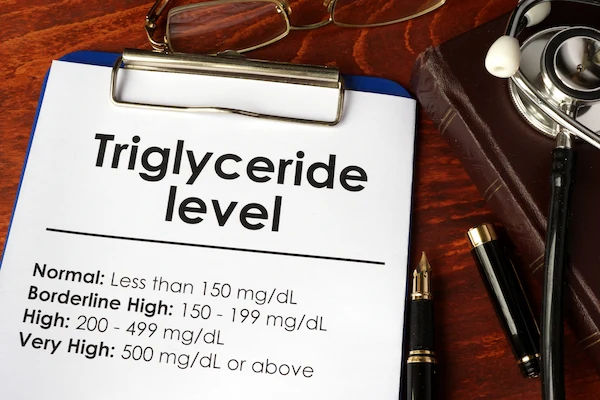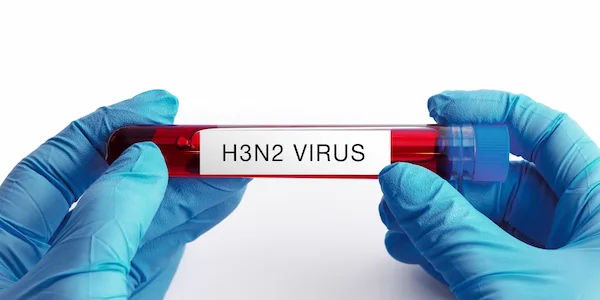Understanding High Triglycerides Levels
Understand high triglycerides: what they are, normal levels, common causes (diet, lifestyle, health conditions), and the serious health risks they pose to your heart and pancreas. Learn how to manage and lower your levels effectively.


Understanding High Triglycerides Levels
Triglycerides are a type of fat (lipid) found in your blood. They serve as an important energy source for your body, but when levels become too high, they can increase the risk of serious health problems like heart disease, stroke, and pancreatitis. If you’ve been told that your triglyceride levels are high, don’t worry—there are simple steps you can take to manage them.
What Are Triglycerides?
Triglycerides come from the food we eat, especially fats and carbohydrates. When you consume more calories than your body needs, the excess is converted into triglycerides and stored in fat cells. Later, hormones release them for energy between meals. However, consistently high levels can lead to health complications.
What Causes High Triglycerides?
Several factors can contribute to elevated triglyceride levels, including:
1. Unhealthy Diet – Eating too many sugary foods, refined carbs (white bread, pasta), and saturated fats (fried foods, processed snacks).
2. Obesity – Excess weight, especially around the waist, increases triglyceride production.
3. Lack of Exercise – Physical inactivity slows down fat metabolism, leading to higher levels.
4. Alcohol Consumption – Even moderate drinking can raise triglycerides significantly.
5. Medical Conditions – Diabetes, hypothyroidism, kidney disease, and liver disease can contribute.
6. Genetics – Some people inherit a tendency for high triglycerides.
7. Certain medications – steroids, birth control pills, and some blood pressure medications may increase levels.
Get Your Symptoms Assessed
Symptoms of High Triglycerides
Most people with high triglycerides don’t experience noticeable symptoms until levels become dangerouslyhigh. In severe cases, symptoms may include:
- Pancreatitis (inflammation of the pancreas) causes severe abdominal pain, nausea, and vomiting.
- Fatty deposits under the skin (xanthomas) – Small, yellowish bumps on the arms, legs, or buttocks.
Because high triglycerides often go unnoticed, regular blood tests are essential for early detection.
Consult Top General Physician
How High Triglycerides Affect Your Health?
Elevated triglycerides contribute to:
- Heart Disease & Stroke – High levels thicken artery walls, increasing the risk of blockages.
- Metabolic Syndrome – A combination of high triglycerides, high blood pressure, high blood sugar, and excess belly fat raises heart disease risk.
- Pancreatitis – Extremely high levels (above 500 mg/dL) can trigger this painful condition.
How to Lower Triglycerides Naturally?
The good news is that lifestyle changes can significantly reduce triglyceride levels. Here’s how:
1. Eat a Heart-Healthy Diet
- Reduce Sugars & Refined Carbs – Cut back on sweets, sodas, white bread, and pasta.
- Choose Healthy Fats – Opt for unsaturated fats (olive oil, avocados, nuts, fatty fish like salmon).
- Increase Fiber – Whole grains, fruits, vegetables, and legumes help lower triglycerides.
- Limit Alcohol – Even small amounts can raise levels, so moderation is key.
2. Exercise Regularly
- Aim for at least 30 minutes of moderate exercise (brisk walking, cycling, swimming) most days.
- Physical activity helps your body burn triglycerides for energy.
3. Lose Excess Weight
- Losing 5-10% of your body weight can significantly lower triglycerides.
4. Manage Underlying Conditions
- If you have diabetes, hypothyroidism, or high cholesterol, follow your doctor’s treatment plan.
5. Quit Smoking
- Smoking worsens heart health and can contribute to higher triglycerides.
When to Seek Medical Help?
If lifestyle changes aren’t enough, your doctor may prescribe medications such as:
- Statins (for high cholesterol)
- Fibrates (specifically lower triglycerides)
- Omega3 supplements (high dose fish oil)
Get Tested Regularly:
- Since high triglycerides often have no symptoms, routine blood tests are crucial. If you haven’t had a lipid profile test recently, consider scheduling one.
Take Control of Your Health Today
High triglycerides are manageable with the right diet, exercise, and medical guidance. If you’re concerned about your levels, consult a doctor for personalized advice.
Consult Top General Physician
Consult Top General Physician

Dr. Jawwad Mohammed Kaleem
General Practitioner
4 Years • MBBS
Hyderabad
Apollo 24|7 Clinic, Hyderabad

Dr. Siri Nallapu
General Practitioner
5 Years • MBBS
Hyderabad
Apollo 24|7 Clinic, Hyderabad

Dr. Shaik Abdul Kalam
General Practitioner
3 Years • MD (Physician)
Visakhapatnam
Apollo 24|7 Clinic - Andhra Pradesh, Visakhapatnam
(100+ Patients)

Dr. Anshul Maheshwari
General Practitioner
5 Years • MBBS
Lucknow
Apollo 24|7 Clinic - Uttar Pradesh, Lucknow

Dr. Syed Yaseen Ahmed
General Practitioner
7 Years • MBBS
Hyderabad
Apollo 24|7 Clinic, Hyderabad





